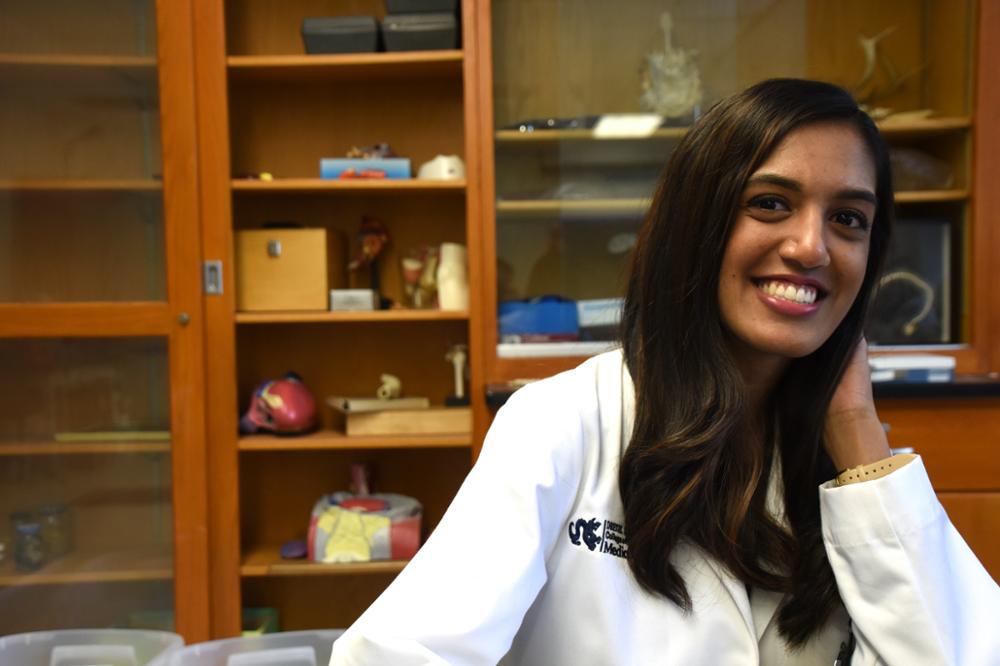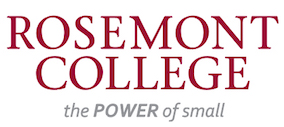Krista Vadaketh, Future Doctor
Tawny Sverdlin - November 11, 2019

Krista Vadaketh (Rosemont ’16) attended Rosemont College from 2013-2016 and was a part of Drexel University College of Medicine’s 7-Year BA/MD Program. She was greatly involved in the Rosemont community and was valedictorian of her class. She is now in her final year at Drexel Med and is applying for residency in Internal Medicine with plans to pursue a fellowship in cardiology.
Rosemont College: Looking back at your education at Rosemont College and in particular the biology and chemistry departments, how well prepared were you for medical school?
Krista Vadaketh: Rosemont provided me with an education that was customized to my career goals and equipped me with the skills that I needed to be successful in medical school and beyond! In terms of my educational experience, I felt that the classes I took at Rosemont were crucial to my academic success in medical school.
Immunology, molecular genetics, and biochemistry are some of the hardest classes in the medical school curriculum. However, these were all courses that I had taken during my time at Rosemont, which meant that I had a stronger foundation in these areas than most of my peers.
RC: What suggestions do you have for the current students who are interested in medical school?
KV: I would suggest getting as involved in as many extra-curricular activities as possible! Medical schools (and residency programs) love to see your interests and hobbies and how you have developed over time as an individual. Making time for extracurriculars can be hard with a heavy work load, but they are definitely rewarding and fun.
Great things to get involved with include volunteering experiences, sports, research, and clubs. During my time at Rosemont, I was involved in Adopt-A-Sis, Villanova University’s Nova Nassa Dance team, research with Dr. Skokotas, and Rosemont’s Pre-Health Club.
The small size of Rosemont allows you to have more opportunities for leadership positions, which are great skills to have when starting medical school. I still talk about a lot of these activities and passions of mine, even during my residency interviews! Being a part of all these organizations definitely molded me into who I am today.
RC: How helpful was the research experience conducted at Rosemont to you in medical school and beyond?
KV: I did research in Dr. Skokotas’ biology lab for two years and served as head research assistant for one year. This research experience was essential for developing both the technical and professional skills needed for medical school.
Dr. Skokotas was a phenomenal teacher – she explained a myriad of basic science laboratory skills and the research process as a whole, while giving us multiple opportunities to present our research at local conferences.
Research is a large part of medical school, and you often have to interview for these research positions. During these interviews, I was able to talk about the technical skills I gained in Dr. Skokotas’ lab, while also honing in on the public speaking skills I gained from all the conferences I presented at.
